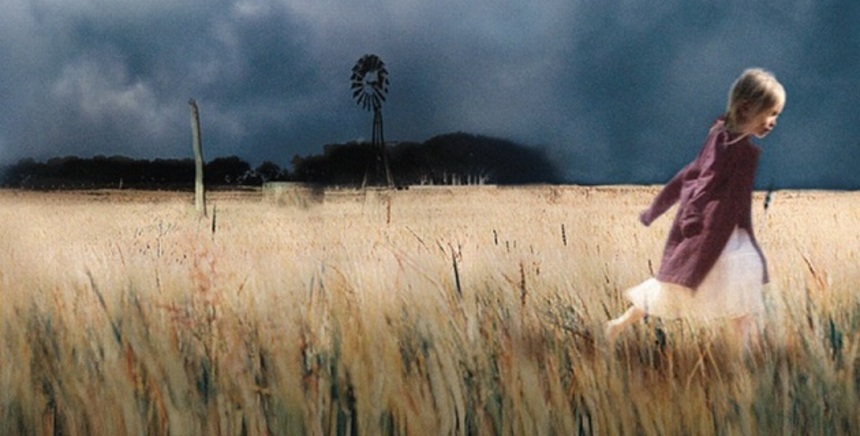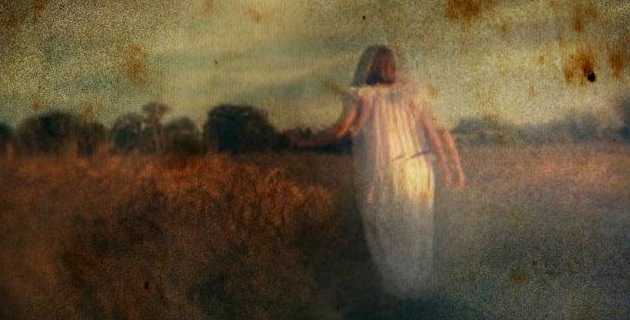Books to be Scene: Chris Womersley's BEREFT

Quinn threw down his cigarette and ground it out under his boot heel. A woman and her young daughter indicated they wished to pass, prompting Quinn and his new companion to stand back as far as the cramped space would allow.
They remained silent until the man, who had again been staring at the scar along Quinn's jaw, motioned for him to lean in and said "You should do something about your face. Cover it up, perhaps? You are frightening the children, you know."
And Quinn, usually so reserved but seized by the devil, replied "Well, the children have good reason to be frightened."
So we're back to serious stories, huh? For serious people?
Pretty much. A wounded Australian serviceman returns home from the first World War, looking for forgiveness for his part in the terrible crime that drove him away several years before, only to find out things aren't going to go as smoothly as he'd hoped. Chris Womersley's Bereft sums up like a Lifetime movie of the week, yet it's anything but. This is a beautiful corpse of a novel, part period piece, part psychological thriller, part Outback Gothic - an elegant, carefully presented but deeply unsettling examination of devotion and loss, with a damaged protagonist where the question of whether he can ever really find some kind of peace with himself is left very much open to interpretation.
Okay, enough big words: give me some details, then.
Fair enough. The main character, Quint Walker, finds his childhood home dying by inches, ravaged both by the fallout from boom town schemes come to nothing and the influenza epidemic sweeping the country. Work's dried up, most of the population have moved away and the ones who've stayed are either coughing their lungs out in a sickbed or staring down the death of hope and losing pretty badly. Finding out the whole town still holds him responsible for his sister Sarah's murder, back when they were both children, Quint flees into the bush to plan his contrition from a safe remove. There he meets Sophie, a young girl living rough who seems to know what Quint's looking to accomplish, and offers to act as his moral compass to set him on the right road.
But why a film?
Seriously, Bereft is an unmistakeably visual book; multiple scenes evoke a drifting widescreen camera, like a vulture hovering over a fresh carcass. It's partly the sensory element, the mentions of arid heat, sweat and grime, but also the loneliness and isolation. There are flashbacks, but beyond the exposition putting Quint's return in context they're generally concerned with memories he can't or won't talk to other people about - death and how people deal with it, or fail to. There's a readily identifiable streak of deliberate, stylised artistry, too. Womersley depicts the objects of his characters' childhood fascinations with a gawky, self-conscious magical realism, from Sarah's never-ending litany of childhood doggerel to Sophie's claims to witchcraft and her house hung with fetishes.
Desperate man on the run, little girl his only friend...
hold on, are you going where I think you're going?
Not sure where you think I'm going, but one of Bereft's most distinctive traits is definitely the sense of unease that clouds both Quint's feelings for his lost sister and, as a grown man, this vagabond girl who's set herself up as his conscience. Womersley skillfully avoids pushing either relationship to extremes; this isn't Let the Right One In nor, say, Louis Malle's notorious Pretty Baby. Quint's devotion is nothing remotely malicious: he's a scared little boy reaching out to someone who's offered him a bond he can't find anywhere else. But at the same time Quint's emotional need plainly borders on obsession; it's not platonic, not sexual, but something hovering brokenly between the two. Everyone else has abandoned him, or soon will - his mother wasting away with influenza, warning Quint his father would shoot him on sight - and his survival depends on sticking close to whoever offers him genuine comfort.
 Is this a literary thing?
Is this a literary thing?No, the touchy subjects are much more than just an exercise in wordy cleverness: they're a source of real dramatic tension as well. Quint and Sophie are as much the hunted as the hunters, and the need to find out whether he finds closure is an immediate thrill as much as a cerebral one, coffee at four in the morning as well as the Sistine Chapel. The stakes are set fairly high from the outset - while Womersley doesn't pretend Quint is that different from any of the millions of other servicemen in the conflict, Bereft deals with savage physical wounds as well as bone-deep, lasting psychological damage. Crippled by battlefield injuries, plagued by self-doubt, Quint is very much the reluctant hero, terrified he'll jam up the works even more than he already has. For all her childlike bravado, Sophie clearly realises she's desperately vulnerable even with Quint around, and Womersley tightens the noose to fantastic effect during the confrontation that closes the novel.
Who could pull this off? In a perfect world?
Malick could take on Bereft, maybe; there'd be plenty of opportunities for meticulously composed landscape shots, or hallucinogenic philosophising. Womersley's prose has the bite of genre fiction, though, a rougher, less disciplined approach. Bereft holds back on the nastiness to some extent - true, this is a book that centres around the rape and murder of a twelve-year-old girl, but although Womersley does wield this device hard enough to cause blunt force trauma there's never any suggestion you'd have to show all the terrible details to get the point across on screen. Still, the emotional language and choice of symbolism - angry, wounded men in an angry, wounded landscape - might suit someone like John Hilcoat if he could ease the throttle back a notch, or perhaps Glendining if he could open it up.
To arthouse or not to arthouse...
Either way, Bereft would be a tremendous movie in the right hands. You'd have to play up the fantastical aspects to avoid it falling into niche territory. While the darkness in the story means any film version would probably never open on hundreds of screens even with a marquee name, paying the right attention to the visual sweep of the narrative and its grit (as well as the psychology and character drama) could broaden its appeal considerably. It'd take more money, but Bereft's story is plainly more than something flavour of the month or rich white people putting their angst up on a pedestal, and treating it with respect could pay dividends. Too strange and forbidding to pass for awards bait - who's going to cheer for The Proposition meets Lawn Dogs? - Bereft is still sufficiently gripping, transporting and deeply compassionate so that any film adaptation done right would net a sizeable audience.
Bereft, by Chris Womersley, published by Quercus, is currently available on Amazon in paperback and Kindle editions.
Want to suggest a book you think would make a phenomenal movie, whether no-one's picked up the rights yet or it's optioned but you wish they'd get a move on? Email bookstobescene@screenanarchy.com with your contributions.

Do you feel this content is inappropriate or infringes upon your rights? Click here to report it, or see our DMCA policy.






